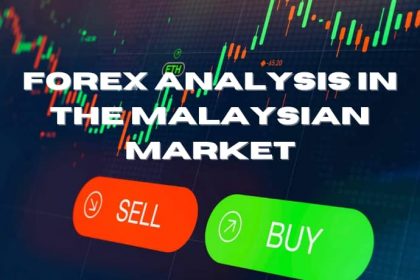London, September 3, 2024 — The global currency markets experienced heightened volatility today as geopolitical tensions and economic uncertainties continued to influence major currencies, leading to significant fluctuations in exchange rates across the board. Traders and investors are closely monitoring these developments as they navigate the complex and rapidly changing financial landscape.
USD Faces Pressure Amidst Domestic and International Uncertainties
The U.S. dollar (USD) showed signs of weakness early in the trading session, pressured by ongoing concerns about the U.S. economy and the Federal Reserve’s monetary policy. Recent data indicating slower-than-expected job growth has fueled speculation that the Fed may pause its interest rate hikes, which has weighed on the dollar. Additionally, geopolitical tensions, particularly involving trade disputes with China and ongoing conflicts in the Middle East, have added to the uncertainty surrounding the USD.
“The market is in a wait-and-see mode,” said a senior currency analyst at a major London-based financial institution. “Investors are looking for clear signals from the Fed, but until then, the dollar is likely to remain under pressure.”
Euro Strengthens Amid Hopes for Economic Recovery
The Euro (EUR) gained ground against the USD and other major currencies as optimism about the Eurozone’s economic recovery grew. Recent data showing stronger-than-expected GDP growth in Germany and France has bolstered confidence in the Euro. Moreover, the European Central Bank (ECB) has maintained a cautious but optimistic outlook, suggesting that the region may avoid a recession.
“The Euro’s performance today reflects the market’s belief that the Eurozone’s economy is on a more stable footing than previously thought,” commented a currency strategist in Frankfurt. “However, the ECB’s next steps will be crucial in determining the Euro’s trajectory.”
Yen Gains as Safe-Haven Demand Increases
The Japanese Yen (JPY) appreciated against most major currencies, benefiting from its status as a safe-haven asset amidst global uncertainty. Concerns about a potential slowdown in the Chinese economy, coupled with rising geopolitical risks, have driven investors to seek refuge in the Yen. The Bank of Japan (BoJ) has also indicated that it may maintain its ultra-loose monetary policy to support economic stability, further supporting the Yen’s appeal.
“With so much uncertainty in the market, the Yen is likely to continue benefiting from safe-haven flows,” said an economist at a Tokyo-based investment firm. “However, the BoJ’s policy decisions will play a key role in shaping the Yen’s future movements.”
British Pound Struggles Amid Political Uncertainty
The British Pound (GBP) remained under pressure as political uncertainty in the UK continued to weigh on investor sentiment. Ongoing debates over Brexit-related trade deals and internal political challenges have created a cloud of uncertainty around the Pound. Additionally, concerns about the UK’s economic outlook, particularly in the face of rising inflation and stagnant growth, have added to the Pound’s woes.
“Political instability is a major headwind for the Pound right now,” noted a London-based currency trader. “Until there’s more clarity on the UK’s political and economic direction, the Pound is likely to remain volatile.”
Emerging Markets Currencies Show Mixed Performance
Emerging market currencies had a mixed day, with some currencies gaining on the back of higher commodity prices, while others struggled due to capital outflows and economic instability. The Brazilian Real (BRL) and South African Rand (ZAR) were among the top performers, benefiting from a surge in commodity prices. Meanwhile, the Turkish Lira (TRY) and Argentine Peso (ARS) faced significant losses due to ongoing economic challenges and political instability in their respective countries.
“Emerging markets are facing a tough environment, with rising global interest rates and economic challenges,” said a senior analyst at a New York-based financial services firm. “Investors are being very selective, focusing on countries with strong fundamentals and positive economic outlooks.”
Looking Ahead
As the global economic and geopolitical landscape remains uncertain, currency markets are expected to remain volatile in the coming weeks. Traders and investors will be closely watching central bank policies, economic data releases, and geopolitical developments for clues on future currency movements.
“In this environment, staying informed and being able to adapt quickly will be key for anyone involved in the currency markets,” concluded a market strategist in Hong Kong.
The ongoing volatility highlights the importance of risk management strategies for those trading in the currency markets, as even small shifts in geopolitical or economic conditions can lead to significant changes in exchange rates.Global Currency Markets: Volatility and Economic Impacts Amidst Shifting Geopolitical Landscapes
London, September 3, 2024 — The global currency markets experienced heightened volatility today as geopolitical tensions and economic uncertainties continued to influence major currencies, leading to significant fluctuations in exchange rates across the board. Traders and investors are closely monitoring these developments as they navigate the complex and rapidly changing financial landscape.
USD Faces Pressure Amidst Domestic and International Uncertainties
The U.S. dollar (USD) showed signs of weakness early in the trading session, pressured by ongoing concerns about the U.S. economy and the Federal Reserve’s monetary policy. Recent data indicating slower-than-expected job growth has fueled speculation that the Fed may pause its interest rate hikes, which has weighed on the dollar. Additionally, geopolitical tensions, particularly involving trade disputes with China and ongoing conflicts in the Middle East, have added to the uncertainty surrounding the USD.
“The market is in a wait-and-see mode,” said a senior currency analyst at a major London-based financial institution. “Investors are looking for clear signals from the Fed, but until then, the dollar is likely to remain under pressure.”
Euro Strengthens Amid Hopes for Economic Recovery
The Euro (EUR) gained ground against the USD and other major currencies as optimism about the Eurozone’s economic recovery grew. Recent data showing stronger-than-expected GDP growth in Germany and France has bolstered confidence in the Euro. Moreover, the European Central Bank (ECB) has maintained a cautious but optimistic outlook, suggesting that the region may avoid a recession.
“The Euro’s performance today reflects the market’s belief that the Eurozone’s economy is on a more stable footing than previously thought,” commented a currency strategist in Frankfurt. “However, the ECB’s next steps will be crucial in determining the Euro’s trajectory.”
Yen Gains as Safe-Haven Demand Increases
The Japanese Yen (JPY) appreciated against most major currencies, benefiting from its status as a safe-haven asset amidst global uncertainty. Concerns about a potential slowdown in the Chinese economy, coupled with rising geopolitical risks, have driven investors to seek refuge in the Yen. The Bank of Japan (BoJ) has also indicated that it may maintain its ultra-loose monetary policy to support economic stability, further supporting the Yen’s appeal.
“With so much uncertainty in the market, the Yen is likely to continue benefiting from safe-haven flows,” said an economist at a Tokyo-based investment firm. “However, the BoJ’s policy decisions will play a key role in shaping the Yen’s future movements.”
British Pound Struggles Amid Political Uncertainty
The British Pound (GBP) remained under pressure as political uncertainty in the UK continued to weigh on investor sentiment. Ongoing debates over Brexit-related trade deals and internal political challenges have created a cloud of uncertainty around the Pound. Additionally, concerns about the UK’s economic outlook, particularly in the face of rising inflation and stagnant growth, have added to the Pound’s woes.
“Political instability is a major headwind for the Pound right now,” noted a London-based currency trader. “Until there’s more clarity on the UK’s political and economic direction, the Pound is likely to remain volatile.”
Emerging Markets Currencies Show Mixed Performance
Emerging market currencies had a mixed day, with some currencies gaining on the back of higher commodity prices, while others struggled due to capital outflows and economic instability. The Brazilian Real (BRL) and South African Rand (ZAR) were among the top performers, benefiting from a surge in commodity prices. Meanwhile, the Turkish Lira (TRY) and Argentine Peso (ARS) faced significant losses due to ongoing economic challenges and political instability in their respective countries.
“Emerging markets are facing a tough environment, with rising global interest rates and economic challenges,” said a senior analyst at a New York-based financial services firm. “Investors are being very selective, focusing on countries with strong fundamentals and positive economic outlooks.”
Looking Ahead
As the global economic and geopolitical landscape remains uncertain, currency markets are expected to remain volatile in the coming weeks. Traders and investors will be closely watching central bank policies, economic data releases, and geopolitical developments for clues on future currency movements.
“In this environment, staying informed and being able to adapt quickly will be key for anyone involved in the currency markets,” concluded a market strategist in Hong Kong.
The ongoing volatility highlights the importance of risk management strategies for those trading in the currency markets, as even small shifts in geopolitical or economic conditions can lead to significant changes in exchange rates.











